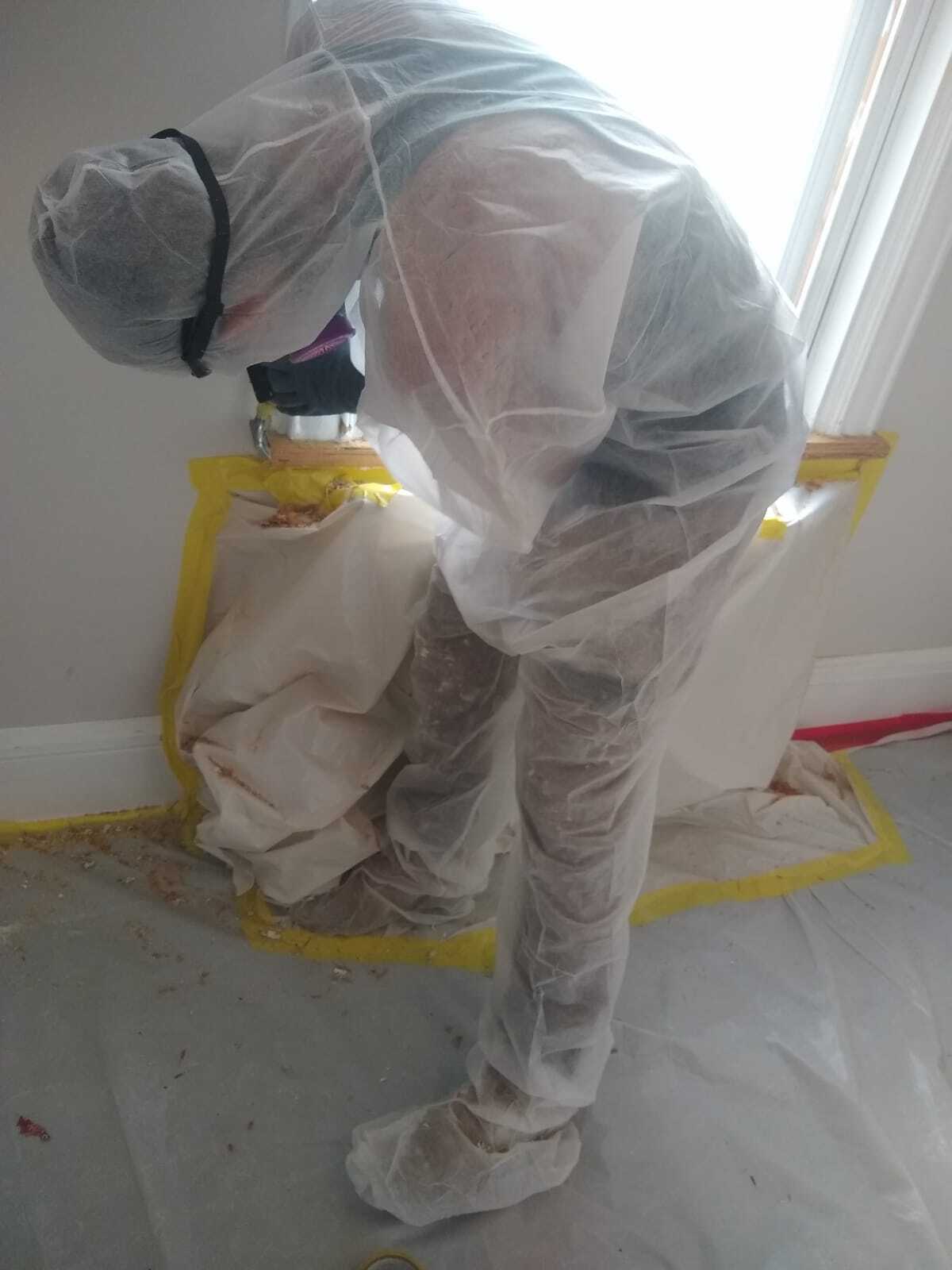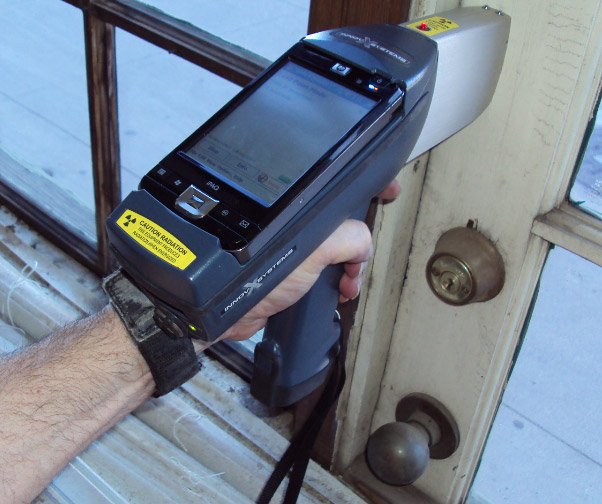Necessary Devices and Approaches for Reliable Lead Infraction Cleanup
Resolving lead violations effectively requires an extensive technique that mixes the right tools with critical approaches. The very first action involves gearing up workers with Personal Safety Tools (PPE) to safeguard their health and wellness. Concurrently, using specialized clean-up tools, such as HEPA vacuum cleaners and lead-specific cleaning representatives, is vital for extensive contaminant elimination. Effective control methods, including plastic sheet and negative atmospheric pressure systems, are crucial to prevent the spread of unsafe products. Furthermore, risk-free disposal techniques and strict adherence to regulative guidelines make certain accountable handling of harmful waste. What are the nuanced methods that genuinely make a difference?
Individual Safety Devices
Personal protective tools (PPE) is a vital component in the effective management of lead contamination cleanup. The important PPE for lead clean-up includes respirators, safety clothing, gloves, and eye protection.
Respirators, particularly those equipped with HEPA filters, are indispensable for filtering system airborne lead bits, preventing inhalation. Safety garments, consisting of coveralls and disposable matches, stops lead dust from sticking to employees' garments, minimizing the risk of secondary contamination.
Moreover, strenuous training on the proper use and maintenance of PPE is essential. Workers need to be enlightened on putting on and doffing treatments to stay clear of contamination. Normal evaluations and replacements of PPE parts are necessary to keep their protective capacities, making certain a secure and compliant cleaning operation.
Specialized Cleanup Tools

An additional necessary device is the wet/dry vacuum, which can effectively cleanse up both dirt and fluid pollutants. These vacuums typically include HEPA filters to supply an extra layer of safety. Damp wipes or tack towels are additionally critical for surface cleansing; they are particularly made to record and hold lead bits, decreasing the danger of spreading out contamination.
For more persistent deposits, specialized lead-removal cleansing representatives are needed. These agents are developed to break down lead fragments, making them simpler to get rid of. Scrub brushes with strong bristles can assist in this procedure, particularly on rough surface areas where lead dirt tends to adhere extra highly.
In addition, encapsulants are utilized to seal lead-contaminated surfaces, stopping the release of lead dirt. These specialized paints and finishings are made to abide by various substratums, offering a long-lasting solution for lead containment.
Reliable Containment Techniques
Effective containment approaches are critical in minimizing the spread of lead contamination during clean-up tasks. Carrying out durable control methods ensures that lead particles do not migrate to unaffected areas, therefore shielding both workers and the atmosphere. One primary technique is the usage of plastic bed linen to seal infected areas. Heavy-duty polyethylene barriers can be set up from flooring to ceiling to develop a regulated workspace, substantially reducing the danger of airborne lead dust dispersal.

To enhance containment, encapsulants can be put on surface areas that are not being eliminated or disrupted. These specialized coverings bind lead dirt, lowering its schedule for resuspension. Additionally, all employees should put on ideal Individual Protective Devices (PPE), including why not try here respirators and non reusable fits, to avoid contamination spread.
Safe Disposal Practices
Ensuring risk-free disposal techniques is a vital element in the monitoring of lead contamination cleanup. Proper disposal mitigates the threat of lead coming back the atmosphere and endangering public health. The very first action is to determine and segregate lead-contaminated waste from various other products. Protected control using durable, watertight containers is essential to prevent spillage during transportation.
Carrying lead waste calls for adherence to strict standards. Utilizing accredited contaminated materials carriers makes sure that the products are taken care of sensibly. Documentation, consisting of materializes detailing the kind and amount of waste, should accompany deliveries to track the waste from the website of origin to its last disposal location.
Designated unsafe waste disposal facilities are outfitted to deal with lead-contaminated materials safely. These centers commonly utilize advanced methods such as stabilization, solidification, or chemical therapy to counteract the lead prior to disposal. Landfilling in specialized, lined areas that stop leachate from contaminating groundwater is an usual practice for final disposal.
Normal training for workers included in lead waste disposal is vital to preserve safety and security criteria and stop accidental exposure. By adhering to these methods, organizations can dramatically lower the ecological and health effects linked with lead contamination.
Regulatory Conformity Tips

Complying with regulatory compliance is vital in the effective execution of lead contamination cleaning. Understanding and complying with federal, you can try these out state, and local regulations makes certain not just the security and health and wellness of people however also the legal and economic well-being of the cleanup organization. The Environmental Defense Company (EPA) establishes strict criteria, such as the Lead Remodelling, Fixing, and Paint (RRP) Regulation, which mandates appropriate qualification and training for service providers taking care of lead-based activities.
Compliance begins with a comprehensive analysis of relevant legislations and regulations. Organizations has to stay updated on any legal modifications, which can be helped with via routine training sessions and signing up for sector updates. Documentation is an additional important conformity facet; maintaining in-depth records of all tasks, consisting of inspection reports, staff member training logs, and disposal materializes, is crucial.
Furthermore, involving with licensed lead assessors or risk assessors ensures that lead risks are properly determined and mitigated. Companies should enforce making use of Personal Safety Devices (PPE) and make sure that security methods are strictly complied with. Last but not least, transparent communication with stakeholders, consisting of workers, clients, and regulatory bodies, will certainly cultivate a society of compliance and accountability, eventually adding to a much safer and a lot more efficient lead clean-up procedure.
Verdict
Reliable lead offense cleaning necessitates the assimilation of specialized devices and tactical approaches to make sure safety and security and effectiveness. Using HEPA vacuums, specialized cleaning agents, and effective containment techniques such as plastic sheeting and adverse air stress systems is necessary. Individual safety equipment (PPE) safeguards employees from direct exposure, while secure disposal practices and stringent adherence to governing conformity are necessary for responsibly handling contaminated materials. Jointly, these measures considerably alleviate health and wellness threats and add to a cleaner atmosphere.
Comments on “NYC Lead Paint Removal Company-- Ensuring Safe and Legal Compliance”